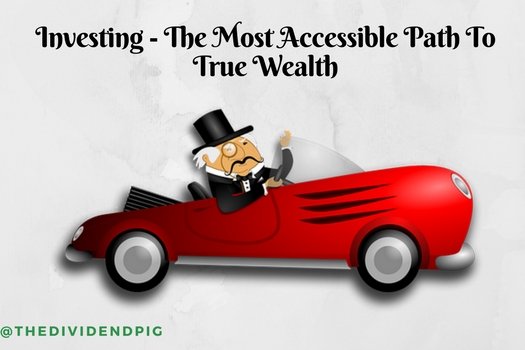First, let me define how I view “True Wealth”.
For me, true wealth is the ability to live your life in anyway you please. It’s the liberty, purpose and resources to live a fulfilling life with the sense of abundance. True wealth goes way beyond money, but today I’m going to key in on the financial piece.
You might have read the book “Rich Dad Poor Dad” by Robert Kiyosaki, which talks about the difference between how the wealthy use their time and resources versus the less wealthy. Of particular interest, is the concept that Kiyosaki introduces known as the Cashflow Quadrant.
Essentially, he asserts there are four categories that everyone falls into in terms of how they make their money – employees, small business owners, big business owners and investors.
He suggests that employees and small business owners are on the left side of the quadrant whereas big business owners and investors are on the right. The fundamental difference between the two are that those on the left side of the quadrant trade time for money in a very linear and transactional way, whereas the big business owners and investors are building assets and income generating networks, which are then leveraged time and time again.
Employees are the most common demographic, yet they are usually the most taxed and lowest paid. Once could guess they appreciate the certainty of a steady paycheck and the convenience that employment brings. Being an employee, however, is not the path to wealth as employees tend to have salaries that are static and dictated to them by management. They’re also trading their man-hours for cash meaning there’s an intrinsic limit to how much they can earn, because there are only so many hours in a week.
Similarly, there’s a limit to how much small business owners can make as they are usually stuck in the trap of swapping time for money too; particularly solo practitioners such as personal trainers, accountants, hairdressers, graphic designers and even barristers. See, you could be the best barrister in town, bringing in a fair amount of revenue – and you’ll certainly have a lot of cash, but wealth goes beyond cold hard cash. True wealth offers a balance of having both the time and money to do whatever it is you want to do. However, if you’re stuck on the treadmill of trading time for money when you stop working the money stops too. There lies the problem with both of these categories.
The big business owner (this doesn’t only refer to someone with a huge enterprise, it could be the guy down the road that has a few ice cream trucks and teenage employees that sell ice cream each weekend) has leverage. They have stopped directly trading their time for money in the sense of being paid X per hour, as they now have an asset and a system they can leverage.
Similarly, investors are leveraging their financial resources in order to make money. They might spend some time researching up and coming deals like Health Insurance Innovations, monitoring the whipsaw up and downs of cryptocurrency, or evaluating the pros and cons of mutual funds. However, they aren’t directly trading their time for money in the linear and transactional way employees and small business owners do.
Essentially, the investor has true leverage; rather than working for his or her money they have their money working for them. This is why it’s so important to start investing, even if you’re currently an employee or small business owner, siphon off a certain percentage of your income each month to invest. This is the only path to financial true wealth.
If you want confirmation of this, just think about how much you would be worth today if a few years ago you invested just 5-10% of your monthly salary into the S&P 500! It’s up roughly 95% (with dividends reinvested) since March of 2013!
Let me close with this. With regards to the financial piece of true wealth, you don’t need millions (or billions) of dollars… you just need enough.


Comments are closed.